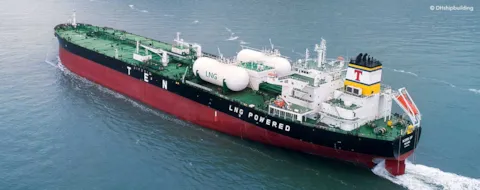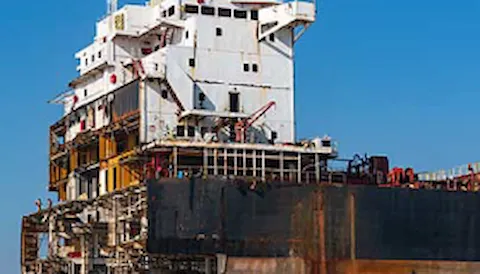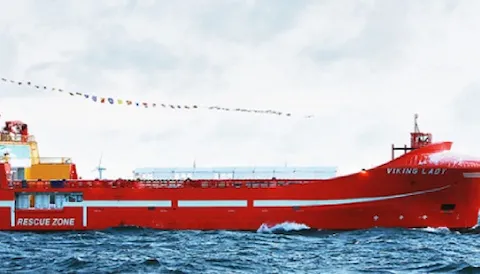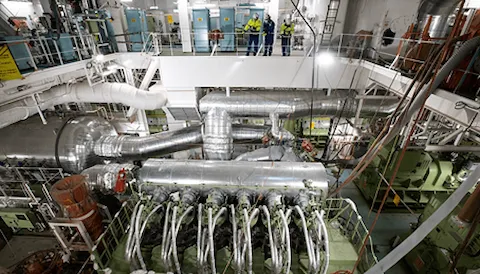Fuel Selector
Rely on this decision-making support service to help you select the optimal alternative fuel strategies for your ships.
Fuel Selector
The maritime industry is continually facing more stringent decarbonization
regulations and expectations, with potentially significant cost implications – and
owners need to prepare for the introduction of these future regulations. However,
at the same time, there is considerable uncertainty about future alternative fuel
prices and availability as well as the technological readiness of alternative fuels.
Developing a clear strategy is therefore key to remaining operational and efficient.
With the Fuel Selector from DNV, shipowners and fleet managers are aided in
navigating regulations while maintaining operational efficiency and long-term
profitability.
You have the insights you need to take informed decisions and avoid suboptimal
investments in newbuilds, retrofits and alternative fuel technologies.
Economical assessment of fuel strategies
The Fuel Selector utilizes a cutting-edge digital model to address the challenges
posed by decarbonization. It compares the economic potential of different fuel
and technology strategies, reflecting energy efficiency measures, greenhouse gas
(GHG) emission regulations and ambitions, and a range of different fuel and
carbon emission price scenarios.
It enables you to simulate various fuel strategies for a single ship or an entire fleet, along with the associated impact of regulations such as IMO CII, EU ETS and
FuelEU Maritime. To do so, it considers the merits of alternative fuel installations on a new building versus a subsequent retrofit, and includes options to explore
various fuel types and the associated fuel technologies as well as carbon capture
and storage (CCS) and the impact of other GHG emissions (CH4 and N2O).
Technical assessment of fuel strategies
In addition to the economical assessment, we can perform a technical evaluation
of the impact of the selected fuel strategies on the ship design, as well as an in-
depth technical engineering review of the integration of the on-board fuel system
for the selected fuel strategy.
Input on the technical specification
As an option, we can assist you in developing the alternative fuel selection of
the technical specification for the selected fuel strategy.
The choices you make in the coming years will affect your economic performance
and ability to meet decarbonization targets. Both ships and fleets must be
prepared for the future – optimized particularly for future regulatory requirements
when emissions will come with an increased cost.
Get the techno-economical assessment you need from DNV to take informed
decisions on the most feasible alternative fuel strategy:
- Obtain a clear overview on the interactive dashboard containing a wide range of different, comparable results
- Gain information about the economic performance per fuel and technology strategy over the vessel’s lifetime (e.g. CAPEX, OPEX, FUELEX)
- Explore various FuelEU Maritime compliance strategies, including pooling
- Technical expert support providing the insights you need
Related links
Energy Efficiency report for download
Learn more about energy-efficiency measures and strategies for different ship types
Alternative Fuels Insight (AFI)
The Alternative Fuels Insight platform provides the maritime industry with an open platform for evaluating the uptake of alternative fuels and technologies.
FuelEU Maritime – Requirements, compliance strategies, and commercial impacts
Download the white paper to gain valuable insights and make smart decisions about your compliance strategy
Can CO2 capture and nuclear get ships to net zero?
DNV’s latest Maritime Forecast to 2050 includes case studies on whether on-board carbon capture and nuclear propulsion could be significant options.
Pathway for a green medium-range tanker towards 2050
Explore the study on a seventh-generation 50,000 dwt “green” medium-range tanker design to determine feasible approaches for achieving compliance with the IMO decarbonization trajectory towards 2050




